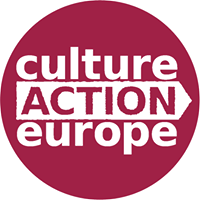 Culture Action Europe calls for securing a sustainable future for the European non-profit cultural sector. The statement from November 15 says, that the new application of financial assessment rules “actively prevents organisations in the cultural and creative sectors from accessing EU funding – particularly in specific EU countries where national regulations do not permit non-profit organisations to keep the reserves needed to be rated financially ‘strong’ by the EU – endangering a sizable percentage of cooperation projects and European networks.”
Culture Action Europe calls for securing a sustainable future for the European non-profit cultural sector. The statement from November 15 says, that the new application of financial assessment rules “actively prevents organisations in the cultural and creative sectors from accessing EU funding – particularly in specific EU countries where national regulations do not permit non-profit organisations to keep the reserves needed to be rated financially ‘strong’ by the EU – endangering a sizable percentage of cooperation projects and European networks.”
Following a 2018 introduced new matrix for the financial capacity of cultural organisations, 27 organisations selected for small and large Creative Europe cooperation projects starting in 2019 were assessed as “financially weak” and informed that they would not receive an advance payment for their projects unless they could produce a bank or third-party guarantee.
The European cultural sector is primarily made up of non-profit micro-organisations and is a powerful contributor to each priority of the EU Strategic Agenda 2019-2024. For all future programmes in the fields of culture, education, innovation, youth and sport CAE demands the implementation of a clause according to Regulation no 1288/2013 establishing Erasmus+, Article 19.3: “In addition to public bodies and higher education institutions, organisations in the fields of education, training, youth and sport that have received over 50% of their annual revenue from public sources over the last two years shall be considered as having the necessary financial, professional and administrative capacity to carry out activities under the Programme.”
The matrix for the assessment of the financial capacity of applicants must be reviewed to make sure that programmes are accessible to the full diversity of cultural operators in Europe, which are overwhelmingly represented by micro-entities.
Read the full statement
 Cultural NGOs in Europe are taking their civic responsibility to mitigate the spread of COVID19 by suspending events and travels. Whether employed or freelance, workers in the cultural sector, who are often in an already precarious situation, are now facing a sudden and dramatic loss of income.
Cultural NGOs in Europe are taking their civic responsibility to mitigate the spread of COVID19 by suspending events and travels. Whether employed or freelance, workers in the cultural sector, who are often in an already precarious situation, are now facing a sudden and dramatic loss of income.
 ietm announced the
ietm announced the